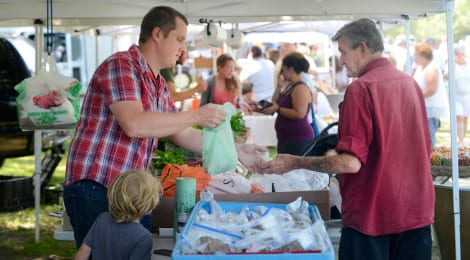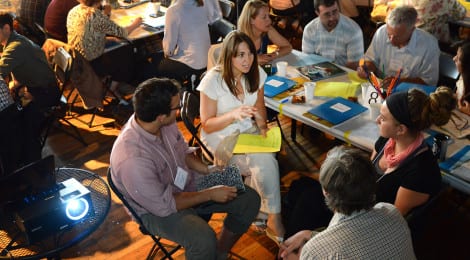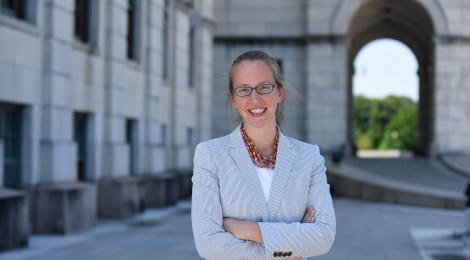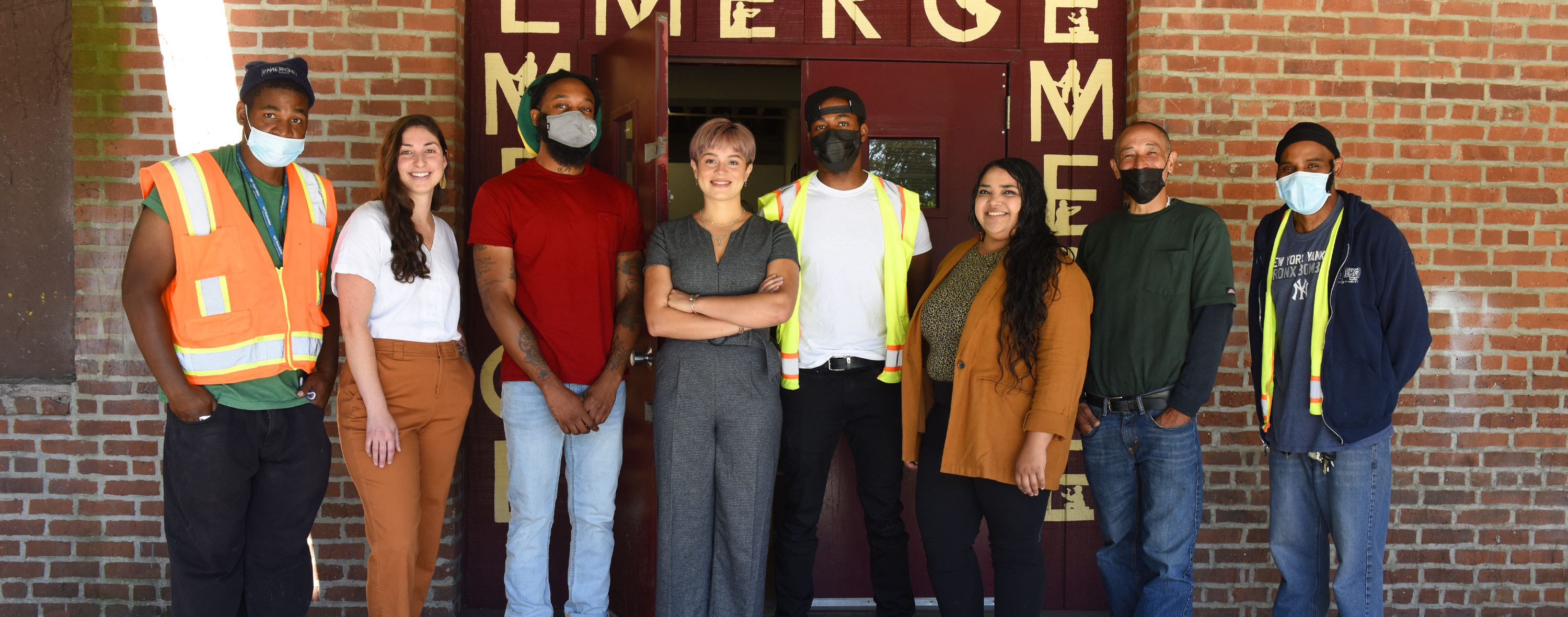
Grantee Profile
We Work From Our Values
When Latha Swamy began her role as the Director of New Haven’s Food System Policy Division (NHFSPD), she immediately identified four primary challenges in her work: funding, staffing, organizational structure, and awareness. As the only member of the team, Latha defined the Division’s values based on her prior knowledge of food systems work and community members’ perspectives. “I felt alone doing the work before,” Latha explains, “but having people join the team helped enhance what those values meant, and I’m proud of the Division and this team.” Since joining the NHFSPD in 2018 Latha continues to center community ownership and justice in the Division’s innovative projects including values-based procurement work, composting, urban agriculture, and sugar reduction approaches. Latha’s leadership is instrumental as the Division collaborates with community members to create a sustainable and equitable local food system.
Latha’s colleagues include Lexi Basile, a Food Systems Administrator, and Kimberly Acosta, NHFSPD’s Food Policy Analyst, who echo Latha’s thoughts on the Division’s commitment to community-driven change and values. Both Lexi and Kimberly grew up in Connecticut and appreciate how the Division embodies multiple priorities, including environmental justice, health equity, and community engagement. Through the team’s collaboration and communication, the Division clarified its mission and value, which are exemplified by the Division’s paid community advisory board. The Division intentionally prioritizes inclusion in their work and committed to forming an advisory board that reflected New Haven’s diversity, so that those most affected by injustice could create meaningful solutions.
The Division works to address a variety of issues, including food insecurity, food business entrepreneurship, urban agriculture, and institutional procurement. Although the Division values collaboration, each member of the team leads their own project. Kimberly oversees the Urban Agriculture Master Plan and describes the process as inclusive and community-led while protecting against gentrification and displacement. As Kimberly conducted research on urban agriculture movements in other cities, “a common thread was that urban ag and development was often associated with gentrification,” she explains, “and that is why we are explicit with naming and addressing it.” In addition, Lexi is creating a food business toolkit that transforms the often-confusing legal jargon of state and local ordinances into more accessible language. Latha engages in all the projects but is particularly focused on values-based procurement to expand and improve institutional partnerships. The Division is building on previously established relationships with stakeholders to connect with different regional and state initiatives, such as the Center for Good Food Purchasing. Despite the disparate projects in the Division’s portfolio, though, every initiative involves community engagement.
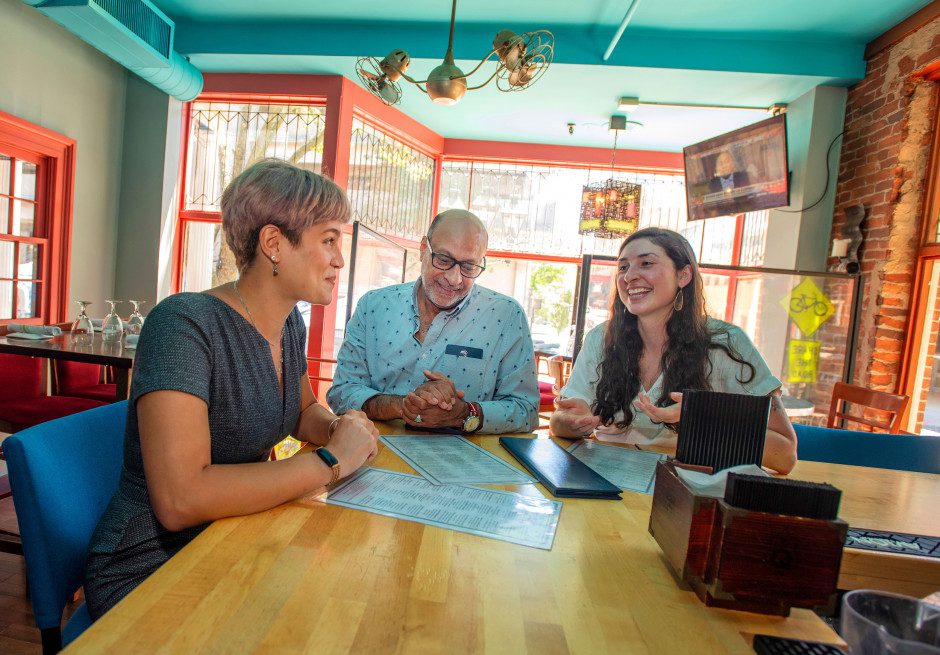
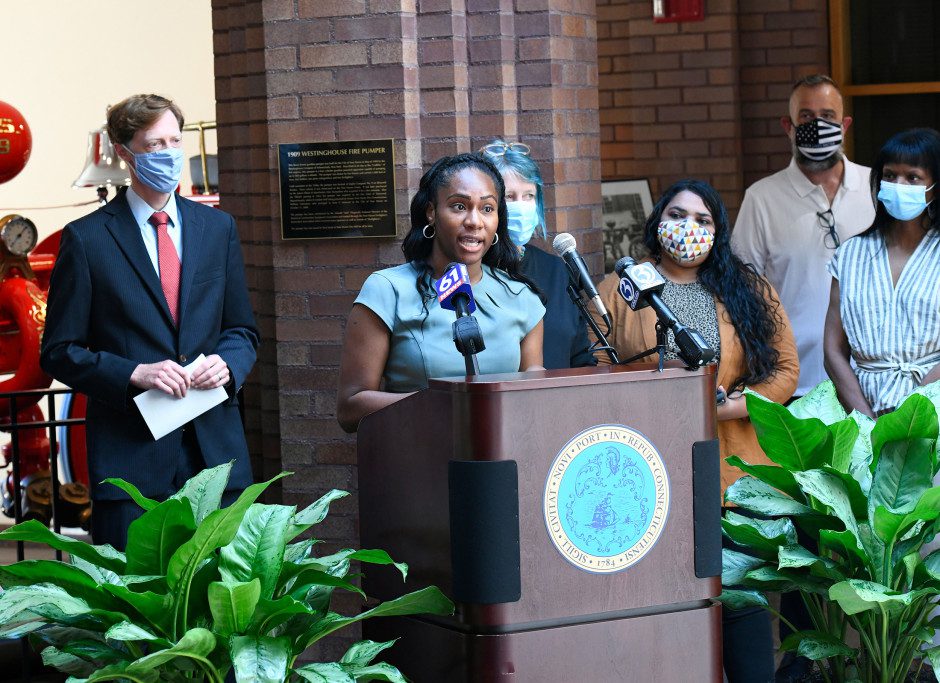
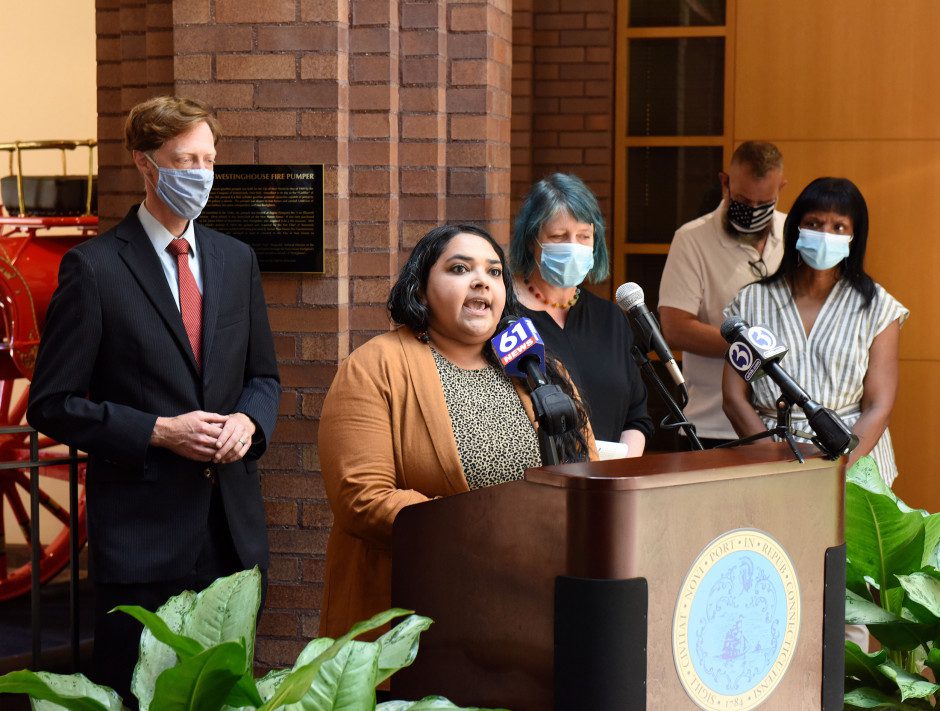
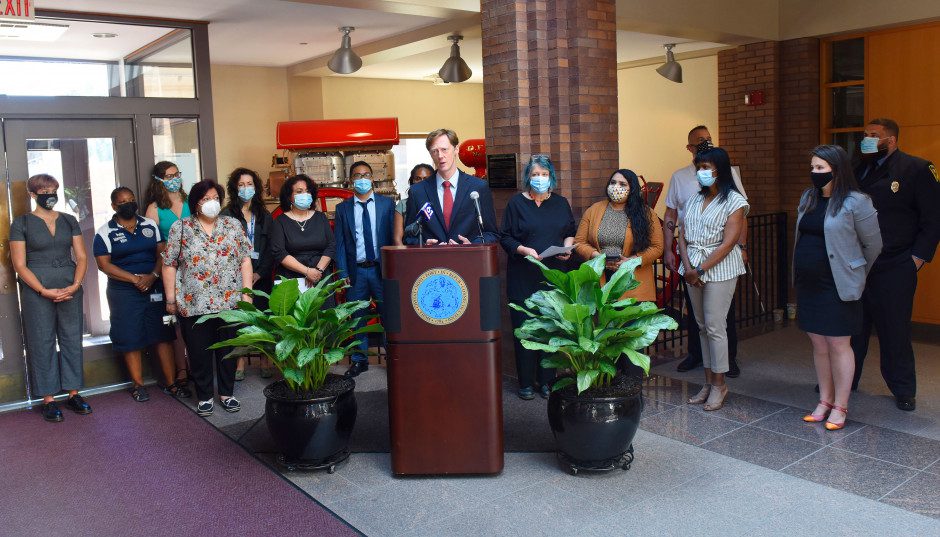
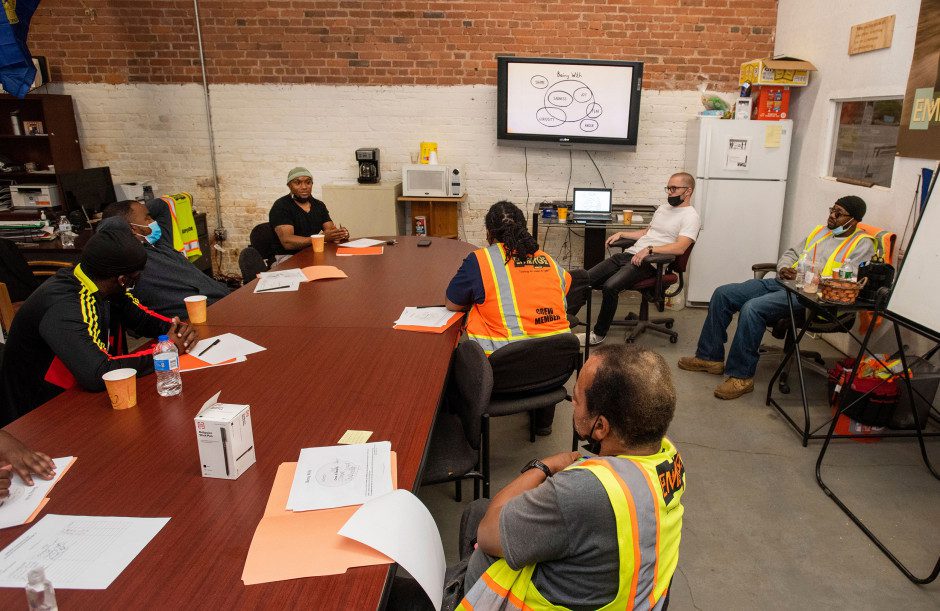
The work of embedding equity into the Division’s work takes intentionality and commitment. The Division makes space for relationship building, which includes an outreach strategy, canvassing, and emphasizing language justice in materials so that as many people as possible can engage with the Division’s work. When the team received a technical assistance grant form Harvard University’s Food Law and Policy Clinic, for example, the team sent out surveys in two languages to identify potential sugar reduction strategies developed in partnership with key community partners. “By building and fostering authentic relationships with people we connect to, we don’t try to force anything,” Latha says. “We are a team that actually listens to community members.” The team’s values of community engagement and voice applies to another ongoing collaboration with the Center for Good Food Purchasing, an initiative Latha is supporting to increase values-based procurement in public schools. Prior to receiving funding for the project, Latha built relationships with important stakeholders, such as school food directors, and embedded those goals into the mayor’s transition report. The Division is also engaging other state and regional networks to expand and improve institutional partnerships. As the team continues to grow and identify meaningful core values, the Division continues to prioritize awareness-building, community voice, and equity to create long-lasting and meaningful change within New Haven’s local food system.
Funding from the Henry P. Kendall Foundation since 2015 provided initial support for the Director of Food Policy role, which was matched by and is now fully funded by the city. Funds have also supported additional staff and administrative costs in the department.
The team at New Haven’s Food System Policy Division cares deeply about both the kind of work they do and how they support the community. As the Division continues to grow and expand, so does the team’s relationships with community members in different areas of work.
By building and fostering authentic relationships with people we connect to, we don’t try to force anything. We are a team that actually listens to community members.
